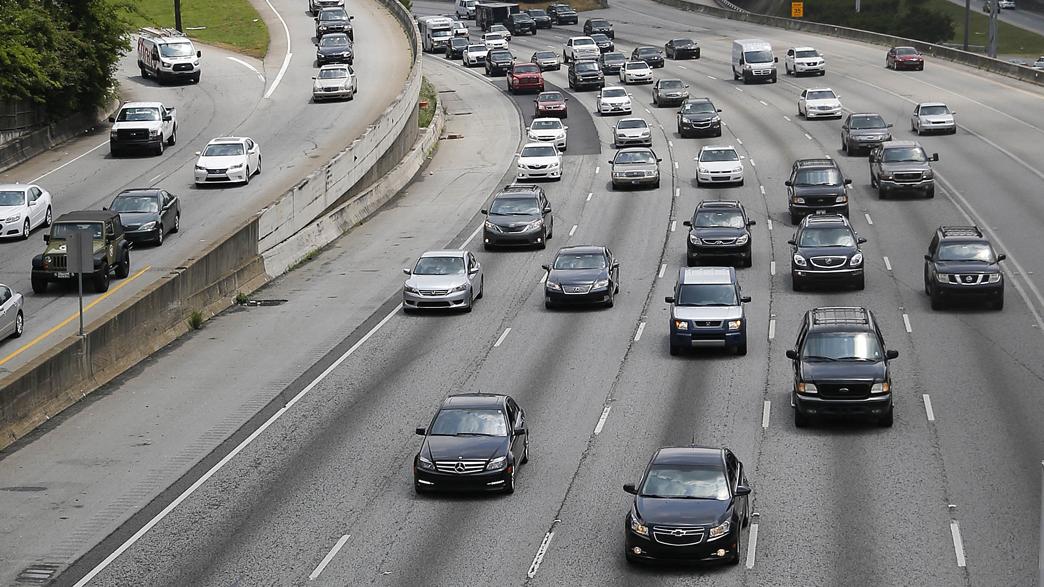Want to flee high-tax states like New York? Turns out it's not so easy
As the exodus from high-tax states continues, experts warn it’s not always easy to establish a domicile in a different, lower-tax state.
The Tax Cuts and Jobs Act introduced a number of reforms, including a $10,000 cap on state and local tax deductions, which have caused Americans to look into establishing legal primary residences in states where they can reduce their obligations.
Geoffrey Weinstein, special counsel in the Tax, Trusts & Estates Department of Cole Schotz, told FOX Business that it’s “very hard to fake” a change of domicile because states put the burden of proof entirely on the taxpayer – and the criteria can be very particular.
“It’s a very fact-sensitive analysis,” Weinstein said.
For those who simply want to leave their home and move to a new one, the process is much simpler and less likely to be disputed or contested.
However, for others who want to maintain a residence in New York or New Jersey, you must establish ties in the new jurisdiction and abandon ties in the old domicile. The latter becomes the issue for tax departments, Weinstein said.
In New York specifically, there are handful of key facts of circumstance that will help determine whether someone has effectively changed their domicile, including:
THE HOME
An analyses of the two houses is likely to factor in, which can include the relative values of the properties, including square footage, the use of the home and other criteria.
For example, Weinstein said it might look suspicious to leave a $1.5 million residence in New York, claiming you have changed domicile for a $250,000 condo in Palm beach, Florida.
ACTIVE BUSINESS INVOLVEMENT
If a person is still working – are there stronger business ties in the old or new domicile?
WHERE TIME IS SPENT
The number of days spent in each state will be looked at.
PERSONAL ITEMS
Where are you stashing your personal items? The location of everything from family heirlooms, photo albums, automobiles, jewelry and other things – like wine collections, for example, could be scrutinized.
Sometimes known as the “Teddy Bear Test,” where near and dear items are kept can become an important part of the process to establish a new domicile.
Weinstein said that one individual who had moved to Texas from New York, who had to fight to prove his residence relocation, was ultimately able to convince the state of his change of domicile because he had moved his dog to Texas.
FAMILY
Everything from the location where your children are enrolled in school to where your spouse is primarily living will be all be important factors in convincing the state you have committed to a change of domicile.
Other factors to keep in mind are things like where you are registered to vote, where your vehicle is registered and where you attend church.
As previously reported by FOX Business, New York and California are particularly aggressive when it comes to residents attempting to flee high taxes. Carrie Baron, co-founder of Baron Strohmenger, told FOX Business that both states have said the number of audits will rise as an increasing number of taxpayers look to move out.
Weinstein said that wealthy people leaving New York have between a 90 percent and 99 percent change of being audited – especially if they’re maintaining a residence in the state and have an adjusted gross income of more than $500,000. He receives direct calls about twice a week from people looking into leaving a high-tax state affected by the new tax laws. During this year’s filing season, he was receiving up to four calls per week.
CLICK HERE TO GET THE FOX BUSINESS APP
While Florida received more movers than any other state last year, according to data from the U.S. Census Bureau, New York's outflows to the Sunshine State were the highest – 63,772 people. New York had the third-largest outflows of any state, with 452,580 people moving out within the past year. California, another high-tax state, had the largest outflow of domestic residents – with the highest proportion of people headed to Texas, Arizona and Washington.




















